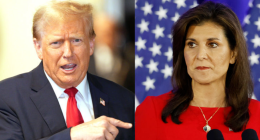
USDT-issuer Tether says it will freeze addresses linked to sanctioned entities following a report that Venezuela’s state-run oil company was using the stablecoin to bypass sanctions.
A spokesperson from Tether told Cointelegraph that the company remains committed to stopping payments linked to Office of Foreign Assets Control (OFAC) sanctioned entities:
“Tether respects the OFAC SDN list and is committed to working to ensure sanction addresses are frozen promptly.”
This comes after an exclusive report from Reuters claimed that Venezuela’s state-run oil company, PDVSA, has been using cryptocurrencies to facilitate its crude oil and fuel exports. The country is facing new oil sanctions reimposed by the United States.
According to the report, the U.S. Treasury Department requires PDVSA customers and providers to wind down transactions by May 31 due to Venezuela’s failure to implement electoral reforms.
Related: Tether’s USDT stablecoin goes live on TON blockchain
The report, which cited anonymous sources, says the reimposed sanctions will make it harder for Venezuela to increase its oil product and export because companies will require U.S. authorizations to do business with the South American nation.
The sources claim that PDVSA has been moving its oil sales to Tether (USDT) as a mitigating move to avoid funds being frozen in foreign bank accounts as new sanctions take effect.
Reports in 2023 linked cryptocurrency payments to a corruption scandal at PDVSA involving the discovery of $21 billion of unaccounted receivables for oil exports.
Related: Stablecoin competition crucial for regulatory engagement — Tether CEO
Reuters’ sources also claim that PDVSA has reworked its spot oil deals in 2024 to a contract model that requires prepayment for exported cargo in USDT. The report also suggests that the Venezuelan state-run oil firm requires new customers looking to conduct oil transactions to hold cryptocurrency in a digital wallet.
It’s understood that companies that looked to resume business with PDVSA following a six-month licensing approval from the U.S. in October 2023 had to resort to intermediaries to carry out the cryptocurrency payment requirements.
Magazine: Lazarus Group’s favorite exploit revealed — Crypto hacks analysis
Also Read More: World News | Entertainment News | Celebrity News








